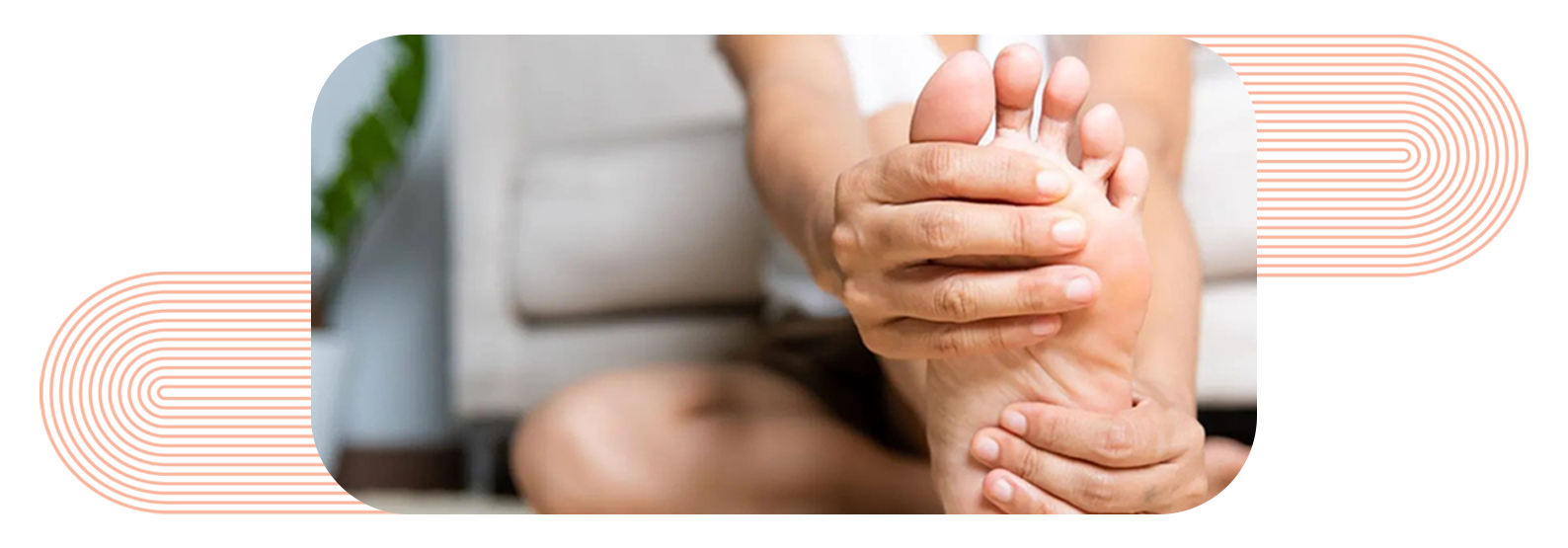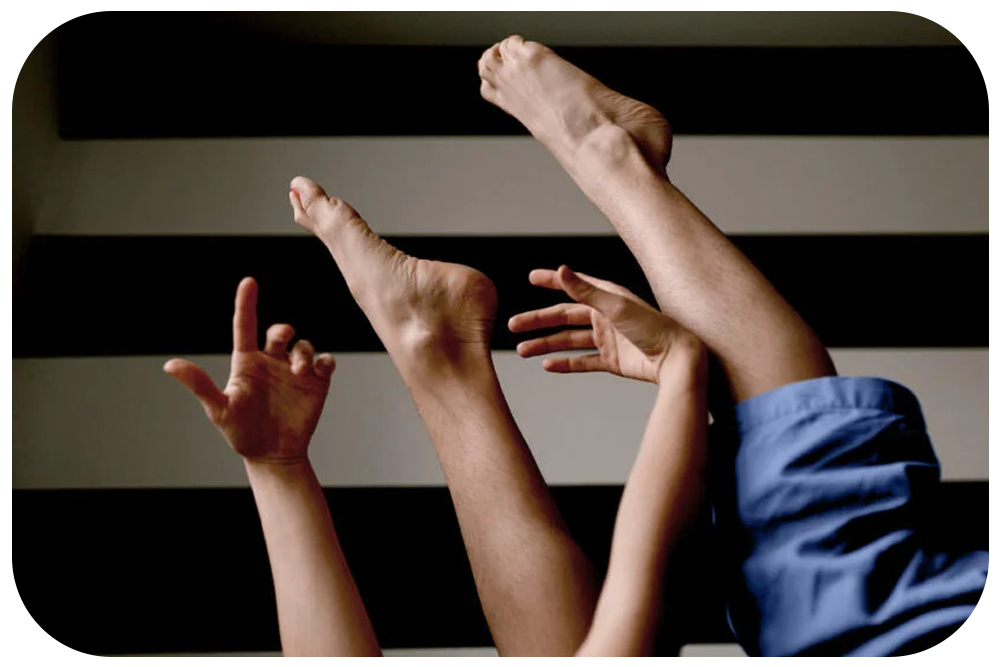
What Causes Bunions?
Bunions are extremely common – it is estimated that 1 in 3 adults will experience bunion pain at some point in their lives. Bunions are most commonly caused by:
Improper or Ill-Fitting Footwear
Wearing shoes that are too small can lead to a bunion, as well as high heels or narrow shoes that might cramp your toes. Many doctors recommend opting for shoes that have a little extra room in order to avoid cramping toes or complications such as bunions which can form as a result of tight footwear. You should also avoid wearing high heels or overly tight and restrictive shoes for an extended period of time in order to avoid bunions and the need for bunion surgery.
Genetics
While many studies show that bunions themselves are not hereditary, one of the most common causes of bunions is the natural shape of one’s foot, which is caused by genetics. If your natural foot shape places pressure on your big toe, it is likely that you will experience a bunion. There is also the possibility that genes responsible for other foot conditions can be a hereditary cause for bunions. Hypermobility, for example, is a condition that can eventually lead to bunion formation and is genetic. Another risk for bunions that could be genetic is a patient with a tight Achilles tendon. While bunions themselves are not believed to be hereditary, there are many genetic causes that can contribute to the likelihood of one experiencing bunions at a higher rate than others.
Joint Conditions
Medical conditions such as Rheumatoid Arthritis that cause bone and joint pain can lead to further complications which include bunions. This often occurs because Rheumatoid Arthritis can cause one’s body to attack the lining of the big toe joint, causing ligamentous and joint instability. The symptoms of Rheumatoid Arthritis and bunions are very similar, so it can be difficult to diagnose a bunion in these patients without a proper doctor’s visit. If you suffer from Rheumatoid Arthritis or similar bone and joint conditions, you are at a higher risk for bunions in comparison to those without pre-existing conditions.
Any activity or condition that puts constant pressure or stress on your big toe joint can put you at high risk for bunions and leave you in need of bunion surgery.
What Are Common Symptoms of Bunions?
Bunions can be extremely painful. Some of the most common symptoms of bunions might include:
Bunion pain usually starts off fairly mild but gets increasingly worse, especially when walking, standing, or wearing certain shoes for a long period of time. Although bunions are common and can be treated fairly easily upon proper diagnosis by a physician, they can cause extreme pain that can make it difficult for those suffering from a bunion to resume their normal, everyday activities. Bunion pain can also flare up at night, making it difficult to get comfortable and sleep properly due to severe levels of pain. Leaving bunions untreated can not only make the pain worse but can also put you at greater risk for further complications.
Bunions can be complex to self-diagnose. If you have any of the symptoms listed above, you should contact your doctor right away to determine whether you are dealing with a bunion and to make a plan for treatment.
How are Bunions Treated?
Bunion pain can be managed or treated with special tools and at-home solutions, which might include:
While these solutions can help to lessen pain, they are not able to completely treat bunions at the source. Over-the-counter solutions and medications might provide short-term relief for the pain that is associated with bunions, but they do not address the root cause of the problem – the fact that ligaments, tendons, and muscles inside your foot have lost their delicate balance. While external treatments like bunion pads or splints can bend your toe back into place, the only way to truly re-establish the balance is by re-positioning those ligaments, tendons, and muscles, then re-aligning the big toe joint. This means that, despite what the companies who make and sell at-home bunion correctors might claim, they are not an effective long-term treatment and will only temporarily treat pain while putting you at risk for further issues in the future.
Some doctors recommend physical therapy or the long-term use of a cast or splint in order to relieve bunion pain, however, most bunions require surgery in order to relieve a patient’s pain permanently.
Bunion Surgery
There are two types of surgical procedures available for the removal and treatment of bunions: conventional surgery and minimally invasive surgery.
Patients who undergo conventional surgery for the treatment of bunions are at a higher risk for a variety of complications, including long-term or permanent scarring, limited mobility after surgery, infection, and nonunion, or complications with the healing of bones. Invasive surgeries such as conventional bunion removal procedures put patients at high risk for pain and difficulty healing and resuming normal activities long after a procedure is complete.
Today, minimally invasive surgery is widely considered to be a better option for the treatment of bunions and The Bunion Cure Surgery Center offers a minimally invasive surgical procedure for bunions which is faster, safer, and cheaper than traditional surgery.
During a minimally invasive surgical procedure, patients are treated in one of many modern surgery suites where only the latest technologies and equipment are used. Under local anesthesia, a small incision is made in the foot and a specially designed surgical instrument is inserted into this incision. The entire procedure is performed through this tiny opening. At the surgery’s conclusion, a small bandage is used to protect the micro surgery area. The entire procedure – including pre-op preparation and post-op recovery – takes less than 90 minutes. Patients can drive themselves home from surgery and will have to wear a special, post-operative shoe for about a week. Minimally invasive bunion surgery is a great option for those who want to ease pain quickly and return to work, school, or other activities without having to worry about a long and strenuous recovery period after undergoing a procedure.
Minimally Invasive Bunion Surgery
Minimally invasive bunion surgery is just as safe and effective as conventional surgical procedures. The biggest safety concern regarding minimally invasive foot surgery is that it utilizes sophisticated techniques that require advanced technology and intimate knowledge of the procedure. In other words, not every podiatrist or surgeon at every medical facility has the skills or the tools needed to perform minimally invasive foot surgeries. In fact, fewer than 100 doctors regularly perform minimally invasive bunion surgery in the United States. As with any surgical procedure, poorly performed minimally invasive surgeries may lead to nerve or muscle damage in the foot. Additionally, surgeries that don’t address the root cause of an issue (like a bunion) can leave the door open for recurrence down the line.
It is important for anyone interested in minimally invasive surgery to find a qualified surgeon who has years of experience carrying out minimally invasive foot surgeries. When done correctly at an institution like The Bunion Cure Surgery Center, minimally invasive foot surgery is superior to traditional surgical methods in virtually every way, and is the best option for all patients suffering from painful conditions such as bunions.
The Bunion Cure at Northwest Surgery Center
Founded by Dr. Robert A. Nielsen, The Bunion Cure Surgery Center is a pioneer in minimally invasive foot surgery. The first minimally invasive procedure was successfully completed in Dr. Nielsen’s office in the 1970s. Since then, thousands of successful surgeries have been done, and NWSC became a certified Ambulatory Surgery Center in 1993. With over 30 years of experience, The Bunion Cure Surgery Center is proud to offer minimally invasive surgery for bunions that is faster, safer, and less expensive than conventional surgery.
If you have been suffering from untreated foot pain, please reach out to the experts at The Bunion Cure Surgery Center for help diagnosing your condition and making a plan for treatment. Whether you are suffering from bunions, hammertoes, heel spurs, or another painful condition, our expert team of physicians is ready to help you find a treatment that will get you back to your everyday life, free from pain. We offer minimally invasive surgical procedures for numerous conditions that can ease pain and put you on the path to a smooth recovery in no time. With decades of experience in ambulatory surgical care, our team is prepared to help alleviate your foot pain and help you reclaim your life.
At The Bunion Cure Surgery Center, our friendly team of experienced professionals can offer fast and effective treatment for your bunions and have you walking out the front door pain-free in a matter of hours. Bunion surgery is the only permanent solution for treating bunions at the source and easing pain, and with decades of experience in minimally invasive procedures, we’re ready to help. Contact us today to schedule a free consultation with one of our expert team members and to make a plan for treatment that will relieve your bunion pain once and for all.







